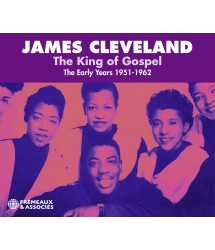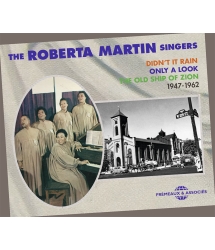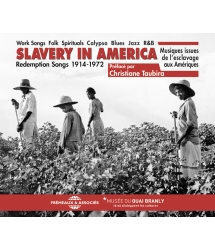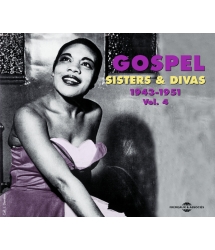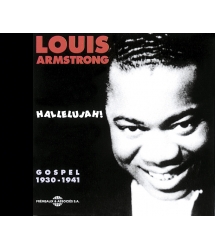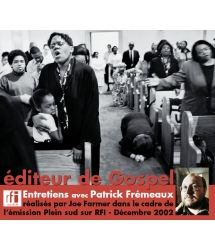- Our Catalog
- Philosophy
- Philosophers of the 20th century and today
- History of Philosophy (PUF)
- Counter-History and Brief Encyclopedia by Michel Onfray
- The philosophical work explained by Luc Ferry
- Ancient thought
- Thinkers of yesterday as seen by the philosophers of today
- Historical philosophical texts interpreted by great actors
- History
- Books (in French)
- Social science
- Historical words
- Audiobooks & Literature
- Our Catalog
- Jazz
- Blues
- Rock - Country - Cajun
- French song
- World music
- Africa
- France
- Québec / Canada
- Hawaï
- West Indies
- Caribbean
- Cuba & Afro-cubain
- Mexico
- South America
- Tango
- Brazil
- Tzigane / Gypsy
- Fado / Portugal
- Flamenco / Spain
- Yiddish / Israel
- China
- Tibet / Nepal
- Asia
- Indian Ocean / Madagascar
- Japan
- Indonesia
- Oceania
- India
- Bangladesh
- USSR / Communist songs
- World music / Miscellaneous
- Classical music
- Composers - Movie Soundtracks
- Sounds of nature
- Our Catalog
- Youth
- Philosophy
- News
- How to order ?
- Receive the catalog
- Manifesto
- Dictionnary











- Our Catalog
- Philosophy
- Philosophers of the 20th century and today
- History of Philosophy (PUF)
- Counter-History and Brief Encyclopedia by Michel Onfray
- The philosophical work explained by Luc Ferry
- Ancient thought
- Thinkers of yesterday as seen by the philosophers of today
- Historical philosophical texts interpreted by great actors
- History
- Books (in French)
- Social science
- Historical words
- Audiobooks & Literature
- Our Catalog
- Jazz
- Blues
- Rock - Country - Cajun
- French song
- World music
- Africa
- France
- Québec / Canada
- Hawaï
- West Indies
- Caribbean
- Cuba & Afro-cubain
- Mexico
- South America
- Tango
- Brazil
- Tzigane / Gypsy
- Fado / Portugal
- Flamenco / Spain
- Yiddish / Israel
- China
- Tibet / Nepal
- Asia
- Indian Ocean / Madagascar
- Japan
- Indonesia
- Oceania
- India
- Bangladesh
- USSR / Communist songs
- World music / Miscellaneous
- Classical music
- Composers - Movie Soundtracks
- Sounds of nature
- Our Catalog
- Youth
- Philosophy
- News
- How to order ?
- Receive the catalog
- Manifesto
- Dictionnary
THE GOOD BOOK
Ref.: FA465
Artistic Direction : PATRICK FREMEAUX
Label : Frémeaux & Associés
Total duration of the pack : 52 minutes
Nbre. CD : 1
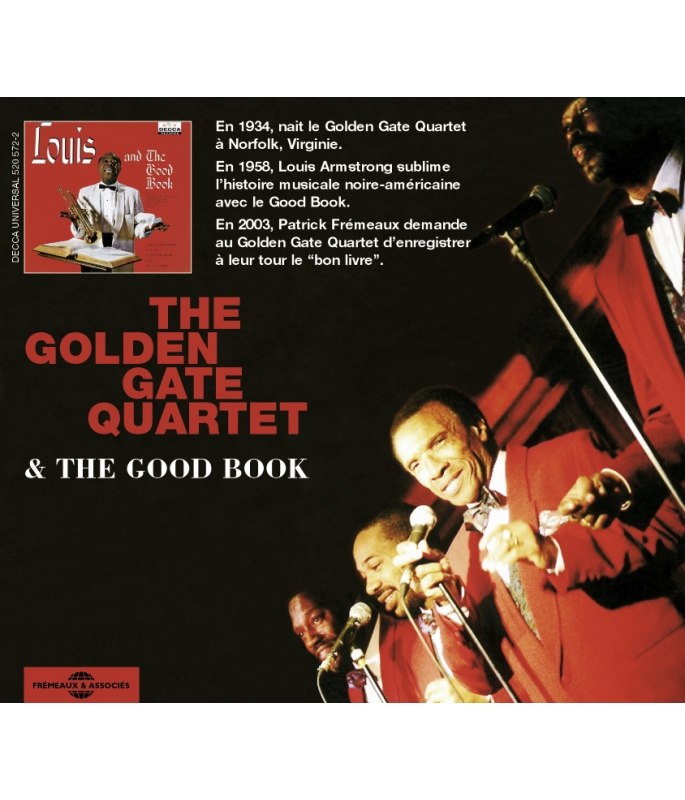
THE GOOD BOOK
- - PLAYLIST TSF
- - * * * * SOUL BAG
- - * * * * JAZZMAN
- - RECOMMANDÉ PAR ROLLIN’ & TUMBLIN’
- - RECOMMANDÉ PAR DIRTY LINEN
THE GOOD BOOK
Created in 1934, the Golden Gate Quartet was one of the primary groups to mark the arrival of Afro-African music in the United States. Inventing a unique musical genre, the quartet popularized Negro Spirituals during the 1940s and 1950s which Louis Armstrong then revealed to the world in 1958 with The Good Book. In May 2003, producer Patrick Fremeaux asked the Golden Gate Quartet to record the repertoire of The Good Book, and it was directed by Clyde Wright, the quartet's second tenor since 1954. This a cappella recording benefits from modern recording techniques, enhancing the original sound of the quartet. Includes a 12 page booklet with both French and English notes.

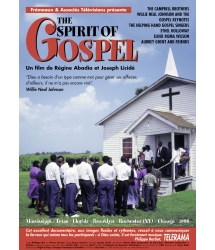
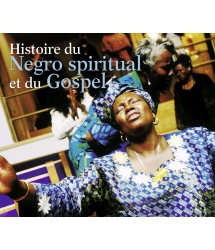
-
PisteTitleMain artistAutorDurationRegistered in
-
1I SOON WILL BE DONE WITH THE TROUBLES OF THIS WORLWRIGHTTRADITIONNEL00:02:392003
-
2SHADRACKWRIGHTR MC GIMSEY00:02:332003
-
3EZEKIEL SAW THE WHEEL A ROLLINGWRIGHTTRADITIONNEL00:02:232003
-
4SWING LOW SWEET CHARIOT (COMING FOR TO CARRY ME HOWRIGHTTRADITIONNEL00:03:342003
-
5ROCK MY SOULWRIGHTTRADITIONNEL00:02:302003
-
6THE END OF MY JOURNEYWRIGHTTRADITIONNEL00:02:502003
-
7GOSPEL TRAINWRIGHTTRADITIONNEL00:02:082003
-
8GO DOWN MOSESWRIGHTTRADITIONNEL00:03:342003
-
9JOSHUA FIT THE BATTLE OF JERICHOWRIGHTTRADITIONNEL00:02:272003
-
10MOTHER LESS CHILDWRIGHTTRADITIONNEL00:03:132003
-
11DIDN T RAINWRIGHTTRADITIONNEL00:02:262003
-
12HUSH HUSHWRIGHTTRADITIONNEL00:03:422003
-
13OH HAPPY DAYWRIGHTTRADITIONNEL00:03:232003
-
14DOWN BY THE RIVERSIDEWRIGHTTRADITIONNEL00:02:262003
-
15WADE IN THE WATERWRIGHTTRADITIONNEL00:02:592003
-
16SWING DOWN CHARIOTWRIGHTTRADITIONNEL00:03:002003
-
17NOBODY KNOWS THE TROUBLE I VE SEENWRIGHTTRADITIONNEL00:03:112003
-
18OH HAPPY DAYWRIGHTTRADITIONNEL00:03:222003
THE GOLDEN GATE QUARTET & THE GOOD BOOK FA 465
THE GOLDEN GATE QUARTET & THE GOOD BOOK
En 1934, nait le Golden Gate Quartet à Norfolk, Virginie.
En 1958, Louis Armstrong sublime l’histoire musicale noire-américaine avec le Good Book.
En 2003, Patrick Frémeaux demande au Golden Gate Quartet d’enregistrer à leur tour le “bon livre”.
Si les ensembles profanes (jazz, pop, soul, rock...) résistent mal à la dispersion de leurs membres, quelques-uns des plus fameux quartettes de negro spirituals (Dixie Hummingbirds, Soul Stirrers, Five Blind Boys, Sensational Nightingales, etc.), qui s’appuient sur un genre musical non sujet aux caprices des modes et du temps, ont su maintenir leur cohésion et leur existence malgré les départs et les décès car chacun a transmis la flamme au suivant, et ainsi de suite. C’est ce qui s’est passé au sein du plus célèbre d’entre eux et l’un des plus anciens, le Golden Gate Quartet où jeunes et plus âgés se sont toujours retrouvés sur des bases communes et dans la plus parfaite harmonie.La nouveauté et la qualité de leur mode d’expression vocale a cappella parviennent rapidement aux oreilles de la compagnie Victor qui, de passage à Charlotte (Caroline du Nord) organise pour eux une séance d’enregistrement dans un hôtel en octobre 1937. Leur premier disque publié, Golden Gate Gospel Train/Gabriel Blows His Horn connaît un tel retentissement que les «Gates» atteignent en peu de temps une énorme popularité dans tout le pays. Les séances de disques se succèdent, d’abord à Charlotte puis à New York ou encore dans un hôtel de Rock Hill (Caroline du Sud) et, à chaque fois, une quinzaine de titres sont gravés. En décembre 1939, le critique et grand découvreur de talents John Hammond les inscrit au programme de son second concert “From Spirituals to Swing” au Carnegie Hall et, quelques jours plus tard, ils sont engagés au Café Society, le premier club de jazz à New York à pratiquer l’intégration raciale et que fréquente l’élite chic et intellectuelle. Les Gates sont ainsi les premiers à faire entrer la musique religieuse dans un lieu profane même si des chants séculiers figurent aussi à leur répertoire.En 1954, Clyde Wright entre dans le groupe comme ténor aux côtés de Riddick.
Ce chanteur, originaire de Charlotte, la ville même où les Gates avaient gravés leurs premiers disques, a débuté dans les années 40 au sein des Southern Brothers avant d’intégrer, autour de 1950, les fameux Selah Jubilee Singers. Ce prestigieux quartette, formé en 1928, se produit parfois avec Sister Rosetta Tharpe et fait souvent les chœurs derrière Mahalia Jackson ! Autant dire que, pour prendre la suite des Owens, Bradley et Eugene Mumford qui l’ont précédé, ce jeune homme possède des qualités professionnelles vocales et harmoniques accomplies.En 1971, Paul Brembly, neveu d’Orlandus Wilson, remplace J. C. Ginyard tandis que Wright, à partir de la même année, reprend son indépendance et cède sa place à Calvin Williams. Ainsi, en 1979, il est à l’affiche du spectacle musical “Gospel Caravan” au Théatre de la Porte Saint-Martin à Paris avec le quartette new-yorkais des Mellotones, lequel, devenu le Gospel Caravan Quartet, tourne en France et aux États-Unis. Mais Clyde ne s’éloigne jamais bien longtemps de ses compagnons et est toujours prêt à effectuer un remplacement s’il le faut. En 1984, il est de retour à plein temps chez les Gates où il demeure encore près de dix années. Charles West lui succède alors. C’est aussi vers la fin de l’année 1994 que Clyde Riddick décide de prendre sa retraite — il nous a quitté en 1999 — et est remplacé par Frank Davis, originaire comme Brembly de Portsmouth (Virginie). Puis, la roue du temps tournant inexorablement, Orlandus Wilson a le temps de former son successeur, Terry François, natif de la Martinique, avant de s’éteindre le 31 décembre 1998, léguant à son neveu Paul Brembly les rennes du Golden Gate Quartet.Et c’est Brembly qui, à l’aube de ce nouveau siècle, a fait appel à son vieux complice Clyde Wright pour reprendre la direction musicale du groupe et tenter de lui imprimer une nouvelle orientation.
D’après Jean Buzelin
Directeur du Patrimoine Gospel chez Frémeaux & Associés
© 2003 Groupe Frémeaux Colombini SA.
Thanks to God for blessings us to complete this new cd. Called “THE GOLDEN GATE QUARTET” and “THE GOOD BOOK” an idea of Patrick FREMEAUX, realized by Clyde WRIGHT
Recorded and mastered at “SYSMO” studio
Sound engineer “Dominique SAMARCQ”
Mastering “Stephan COME”
Director of the recording session “Clyde WRIGHT”
Thanks to Mister Orlandus WILSON for his arrangements of the songs recorded on this album also to Clyde WRIGHT for his adaptation and new arrangement of “Oh Happy Day”.
Also I wish to give credit to the people involved in the origination of Golden Gate Quartet in the 1930 :
Eddie GRIFFIN the first tenor who owned a barber shop. He replaced himself with “William LANGFORD” because he didn’t want to leave his business.
Willie JOHNSON baritone who created the style by taking stories from the bible and narrating them in a rhymatic form with jazz syncopation. Also arranger.
Henry OWENS “second tenor” considered to have the best voice in the group. He also gave the group the gospel sound. After about 10 years, left the group to become a Baptist preacher.
Robert FORD the first singer who only had one leg, sanded with the group about three years but was unable to continue with the group because of bad health. He was replaced by the young !
Orlandus WILSON who gave the group a real original style singing a delayed bass and a deep resonate sound not heard by any other bass singer. He also created songs and made many arrangements and lead the group from 1943 until (1998).
Clyde RIDDICK with a rare tenor voice in the Quartet. A very poweul tenor, with great microphone tecknic and an outstanding personality. He replaced Willie Langford in 1939 and remained with the group until 1994 at which time he retired.
Connie FREDERICK the first piano player for the quartet who made many arrangements for the group.
Herman FLINTOL the second pianist for the group. He also made many vocal arrangements for the group. He was also arranger for the Dorsey Brothers Orchestras.
Erwin TROTTMAN the third pianist for the group. Erwin Smilly TROTTMAN also made arrangements for the quartet.
Glenn BURGESS the fourth pianist for the group. Glenn travelled with the group from Canada and trips around the world. He also made arrangements for the group.
Rolland SCHNIDER of Germany was pianist for the group.
Dany REVEL also played for the group.
The Golden Gate Quartet
by Paul Brembly
The Golden Gate Quartet has for almost 70 years been bringing joy and happiness to many through their songs, music, and “World-Class” showmanship. Still to day, they are continuing with the same style and tradition that put them on the map to fame more than 68 years ago.The year was 1934, in Norfolk, Virginia U.S.A. Four young lads decided to harmonize four voices together. The sound they produced was different from the sound of their church choirs and glee choirs of the day. The style they created had a syncopated rhythm, a jazz swing with rich church harmonies. They called it “Jubilee”. Thus the name they had at the start; “The Golden Gate Jubilee Singers”. The Mills Brothers, one of the popular groups of that period, was an inspiration for the four young singers from Virginia. As word speed from this new and exciting sound, so did their appearances and engagements from churches to radio shows in North and South Carolina made them one of the hottest new groups around.In 1938, a talent scout and promoter, John Hammond invited the group to New York to perform in the now legendary “From Spirituals to Swing” concerts at Carnegie Hall. Around about that time they also cut their first recorded sides, laying down 14 tracks in just two hours. Unheard of at the time, and even by today’s’ standards rare!Around 1938, they were doing nationwide radio interviews and performances at New York’s’ “Cafe Society”. History was also being made, as they were one of the first, if not the first black group to sing at President Franklin D. Roosevelt’s inaugural gala in 1941.
Also in the forties, The Golden Gate Quartet made appearances in a few films such as: “Star Spangled Rhythm, “Hollywood Canteen”, and “A Song is Born” while also recording for Columbia and Mercury records.In 1955, they departed on a tour of Europe and to their surprise, they found a new and exciting public who already knew of them and of their music. To day, they remain just as famous in Europe as they are elsewhere.In 1994, the American organization “United Group In Harmony Association” (UGHA) in New York, inducted The Golden Gate Quartet into their “Hall of Fame”. To mark the occasion, The Golden Gate Quartet gave special concerts, radio and television Interviews.For those of you who have followed The Golden Gate Quartet throughout the years; will know that Willie Johnson was the group’s leader arranger and narrator from 1934 until 1943. Orlandus Wilson replaced Robert Ford as bass singer for the group in 1936 and became the groups secretary, until Willie Johnson left the group in 1943 at which time, Orlandus Wilson became the groups leader arranger and lead the group until his death in 1998. There have been quite a few changes throughout the history of The Golden Gate Quartet.However, Wilson and Clyde Riddick (who joined in 1939 as first tenor) were the longest staying members to date. Riddick retired at the end of 1994 at the age of 81. He passed away on the 9th of October 1999. Wilson passed the torch on to his grandnephew Paul Brembly (who joined in 1971 as baritone). Today he is the group’s leader along with Clyde Wright (who first joined in 1954 as second tenor) Clyde is the group’s manager, arranger and director. The new comers, Frank Davis (who joined in 1995 as first tenor) and Thierry Francis as bass. Almost 70 years later, the group is still active doing new recordings, Tours, radio, and television appearances.The gates are like “Old Man River”. That just keeps rolling right on along. “The Voices of legend” thus sometimes called today by our many fans ! We are blessed to still be able to bring joy and happiness through our songs and Music!
Paul Brembly
© 2003 Paul Brembly - Fremeaux & Associés
Paul Brembly, born in Portsmouth, Virginia, 1950, I sang in my high school choir (I.C.Norcom High). Was always interested in music. I always loved the sound of the guitar and wanted to play one, but my folks thought I wasn’t serious enough. So I made my first guitar. After that, they took me down to the music store, and I picked out a guitar. My brothers and I had our own band for a while, but slowly, they all gave it up. So I joined some more guys my age and formed our first group (The Soul Symphonics Band). We were an RnB outfit. Playing and performing tunes from Wilson Pickett, James Brown, and Aretha Franklin, to name a few. Plus our own songs. We did enjoy a local hit with a song of ours called, “A Bunch of Bull”. Those were fun times. In 1971, after finishing school; I was given my first trip to Europe. And to be able to travel on tour with the Golden Gate Quartet was a real treat! For years, I had always listened to and admired the music. Orlandus Wilson (then bass singer and leader of the group) was my great uncle. After traveling with them for some weeks, Caleb Ginyard became ill, and I was aksed if I could help out by replacing Mr Ginyard for the rest of the tour. And that was my start with the Golden Gate Quartet. Thirty-three years later now, as leader still, following in the footsteps and tradition of the group. My uncle and some of the others have gone on to glory, but together with Clyde Wright (now groups’ manager), we keep rolling right on along like old man river! We hope that our maker will continue to keep us that we may continue to carry our songs and music to our many wonderful fans’ Paul Brembly
Clyde Wright, started in the Church Choir at the age of four. Made a special appearance with Mahalia Jackson at Carnegie Hall in New York. Toured with Mahalia Jackson for two years before joining “The Golden Gate Quartet”. Was the soloist with “The Golden Gate Quartet” for 18 years, performed in more than 50 countries. Released together with The Golden Gate Quartet 20 LP’s. Clyde Wright made his first recording for Frémeaux and Associés in 1997 title “Oh What a day!” also recorded in Raleigh, North Carolina, USA February 2002 with The Golden Gate Quartet. Paul Brembly leader of The Golden Gate Quartet asked Clyde Wright to take over the management and arranger of the group.
CD THE GOLDEN GATE QUARTET & THE GOOD BOOK © Frémeaux & Associés (frémeaux, frémaux, frémau, frémaud, frémault, frémo, frémont, fermeaux, fremeaux, fremaux, fremau, fremaud, fremault, fremo, fremont, CD audio, 78 tours, disques anciens, CD à acheter, écouter des vieux enregistrements, albums, rééditions, anthologies ou intégrales sont disponibles sous forme de CD et par téléchargement.)
